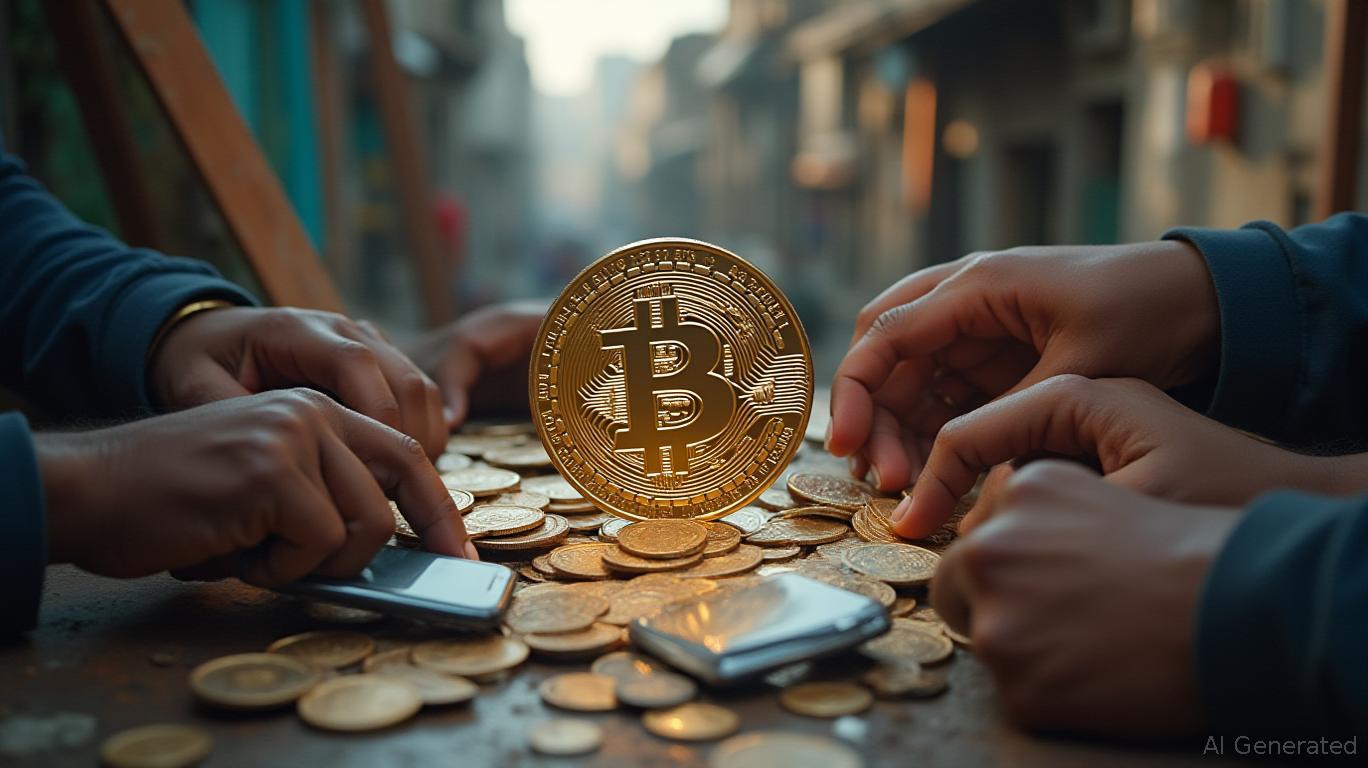Blockchain-based banking offers a crucial solution to Venezuela's hyperinflation crisis
- Venezuela's Conexus plans to integrate Bitcoin and stablecoins into its banking network via a blockchain-based interbank system, enabling custody, transfers, and fiat exchanges. - The initiative addresses hyperinflation and currency instability, leveraging crypto as an inflation hedge while offering low-cost cross-border payments for 40% of the country's electronic transactions. - Modeled after successful mobile payment systems, the project mirrors global trends like JPMorgan's crypto custody and SWIFT's
Venezuela is preparing to overhaul its financial sector as Conexus, the country’s top payment processor, plans to incorporate
The motivation behind this integration stems from Venezuela’s ongoing economic difficulties, such as hyperinflation and a volatile currency. Gasparri pointed out that more Venezuelans are turning to stablecoins and Bitcoin to shield themselves from inflation, a pattern that has accelerated in recent years. By adopting blockchain, Conexus intends to deliver a transparent and secure environment for cryptocurrency transactions, enabling users to safeguard their wealth while enjoying quick and affordable international payments, according to

The planned platform will build on the achievements of interbank mobile payments, which are now a vital part of Venezuela’s financial system. Conexus, the pioneer of the nation’s mobile payments—handling 100 million transactions each month—views blockchain as the natural next phase in digital finance. Gasparri likened the project to BBVA’s crypto custody services in Spain, suggesting that regulated blockchain use could broaden access to digital assets while preserving institutional protections, as reported by
On a global scale, this initiative fits with wider trends in financial technology. Leading U.S. banks, including JPMorgan and Bank of America, have already introduced crypto custody solutions, and SWIFT has announced intentions to shift stablecoin transactions onto blockchain platforms. At the same time, regulators are addressing the challenges posed by the swift rise of stablecoins. A regulatory framework from 2022, scheduled for implementation in 2026, will require banks dealing with crypto assets to meet strict capital standards, prompting a reassessment to better match regulatory measures with the changing market. The U.S. has also moved forward, passing the GENIUS Act in 2025 to encourage crypto adoption, as noted by Invezz.
Conexus aims to roll out its project in December 2025, with the necessary infrastructure already being developed, Coinpedia added. If the initiative succeeds, Venezuela could emerge as a leader in blockchain-driven finance in the region, providing a model for other nations seeking to address economic instability through digital solutions.
Disclaimer: The content of this article solely reflects the author's opinion and does not represent the platform in any capacity. This article is not intended to serve as a reference for making investment decisions.
You may also like
Bitcoin Updates: Fed Divided Over Rate Reduction Amid Conflicting Inflation and Employment Concerns
- Fed officials debate December rate cuts amid conflicting inflation data and labor market risks, with no consensus on policy path. - Short-term inflation expectations rose to 4.7% in Nov 2025, while long-term forecasts stabilized at 3.6%, reflecting cautious public confidence. - Government shutdown delays critical economic data, forcing policymakers to rely on limited information as officials warn against both high rates and rapid cuts. - Tech/industrial firms showed resilience with strong Q3 earnings, co
LUNA Rises 10.0% in a Day Despite Market Fluctuations
- LUNA surged 10.0% in 24 hours on Nov 7, 2025, but remains down 78.51% year-to-date amid broader crypto market declines. - Analysts attribute the short-term rebound to buying activity, yet highlight persistent bearish trends and macroeconomic uncertainties. - Technical indicators show LUNA trading below 50-day and 200-day moving averages, reinforcing the continuation of a long-term downtrend. - Backtesting suggests sharp price surges like LUNA's 5%+ daily gains historically lack sustained momentum without
European Central Bank to launch digital euro pilot phase starting in 2027
DeFi protocol Balancer suffers 128 million USD hack